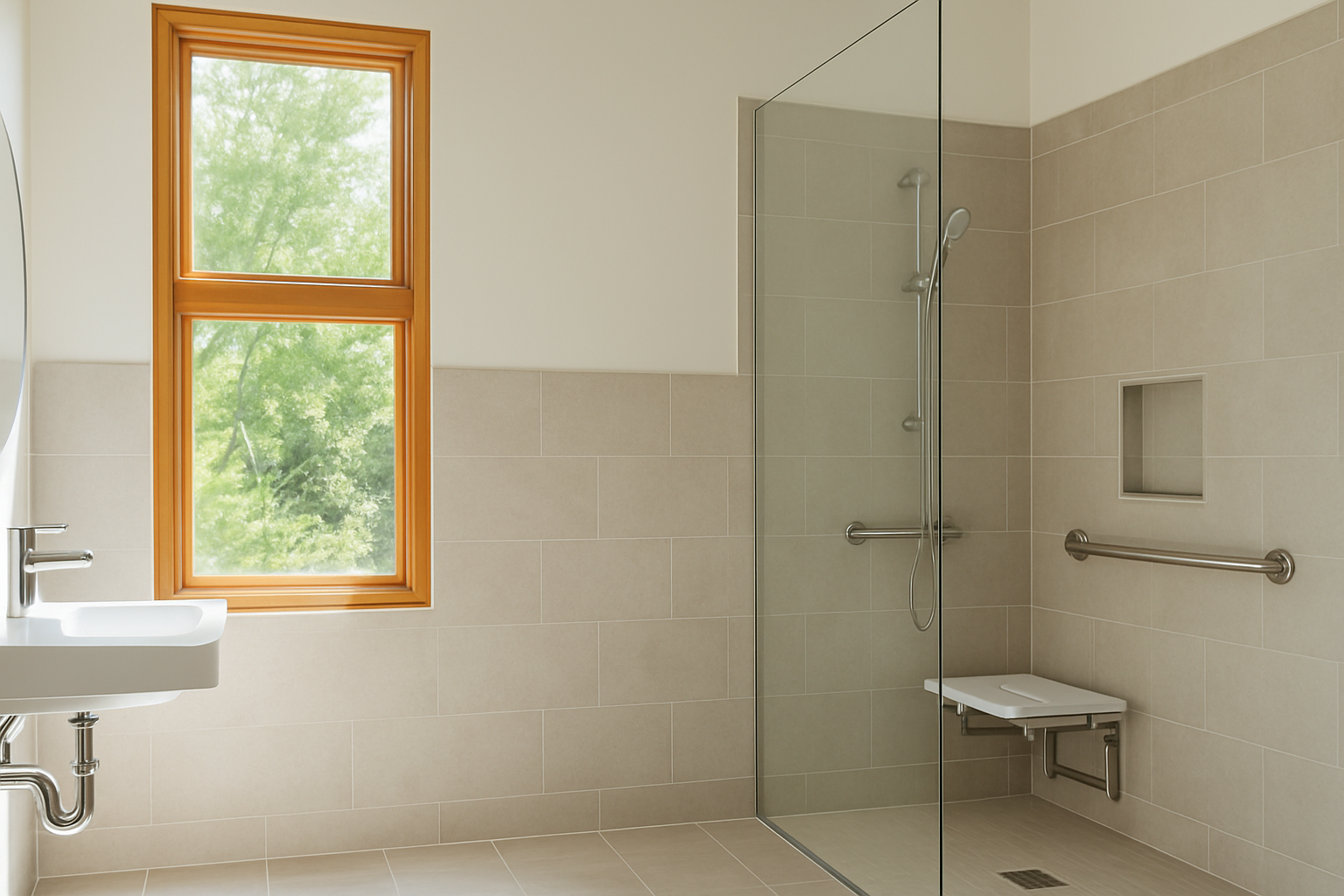Lighting is a powerful design tool—especially in the bathroom. While artificial lighting gets all the credit for ambience and functionality, natural light is what truly transforms a bathroom into a warm, welcoming, and even wellness-enhancing space. It lifts moods, opens up small spaces, reduces the need for artificial lighting during the day, and makes a bathroom feel more connected to nature.
But unlike living rooms or bedrooms, bathrooms come with a unique challenge: privacy. That’s why strategic window placement is key. The goal is to let in as much daylight as possible without sacrificing comfort or discretion.
In this article, we’ll explore smart, architect-approved window placement ideas that maximize daylight, preserve privacy, and elevate the bathroom experience.
Why Natural Light in Bathrooms Matters
Before we dive into window strategies, let’s talk about why natural light is so important in bathroom design.
- Energy efficiency: With ample daylight, you’ll use less electricity during daytime hours.
- Health benefits: Exposure to natural light helps regulate circadian rhythms, improves mood, and enhances vitamin D synthesis.
- Visual comfort: Natural light is easier on the eyes than fluorescent or LED lights—and makes colors appear truer.
- Moisture control: Sunlight naturally reduces dampness and inhibits mold growth in humid areas.
Incorporating natural light also aligns with biophilic design principles, which aim to reconnect people with the outdoors—even from inside their homes.
1. High Windows for Privacy and Light
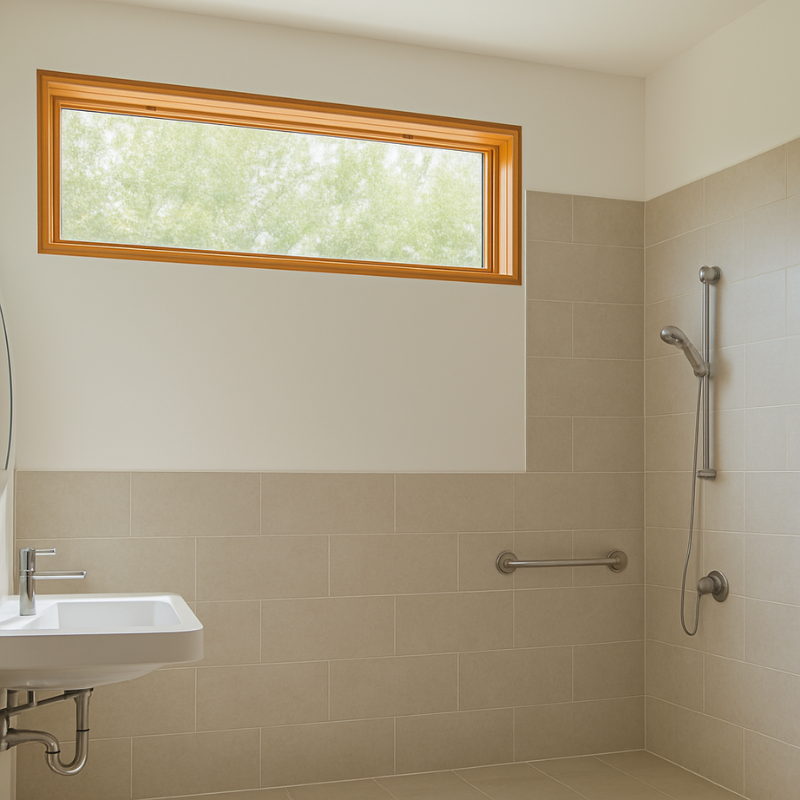
If you’re concerned about views into the bathroom, high-set horizontal windows are a brilliant solution. Placing windows near the ceiling allows maximum daylight to enter while keeping the space completely private.
High windows are especially effective when placed:
- Above mirrors or vanities
- On walls adjacent to the shower
- Along narrow walls where eye-level glazing isn’t practical
Clerestory windows—a popular choice in modern architecture—are ideal here. They work well with flat or sloped ceilings and bring in consistent ambient light throughout the day.
2. Skylights and Roof Windows
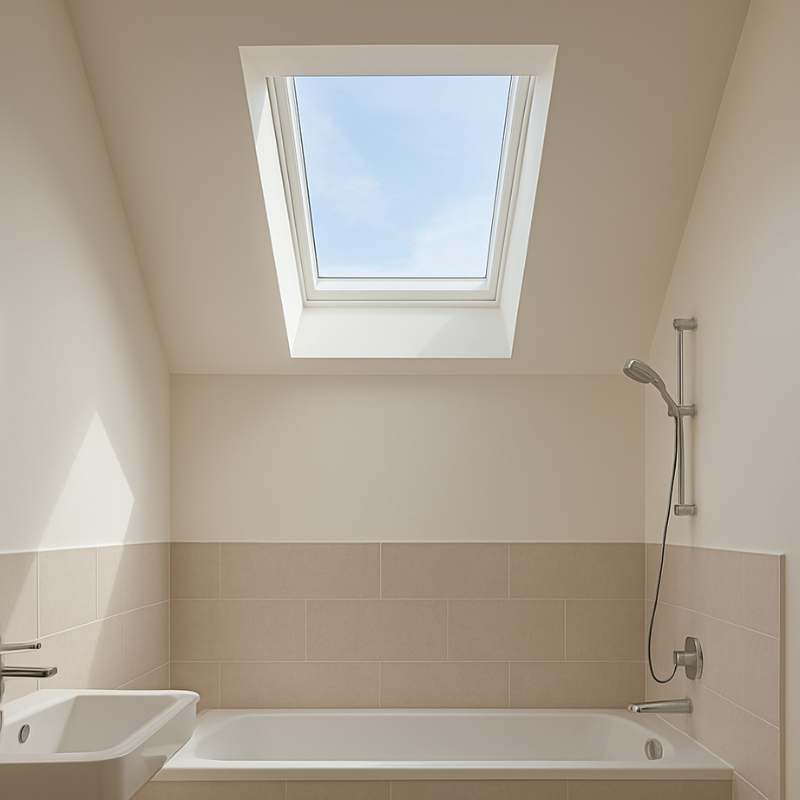
If you have a bathroom with limited exterior wall space (such as in apartments or internal ensuites), look up—the ceiling is your best friend.
Skylights and roof windows offer:
- Abundant natural light
- Excellent ventilation when operable
- Zero compromise on privacy
For best results, consider installing skylights with solar shades or smart glass to manage brightness during peak daylight hours. Also, make sure they are well insulated to avoid heat loss or gain, especially in extreme climates.
A well-placed skylight over the bathtub or shower turns a daily ritual into a spa-like experience.
3. Frosted or Textured Glass for Privacy
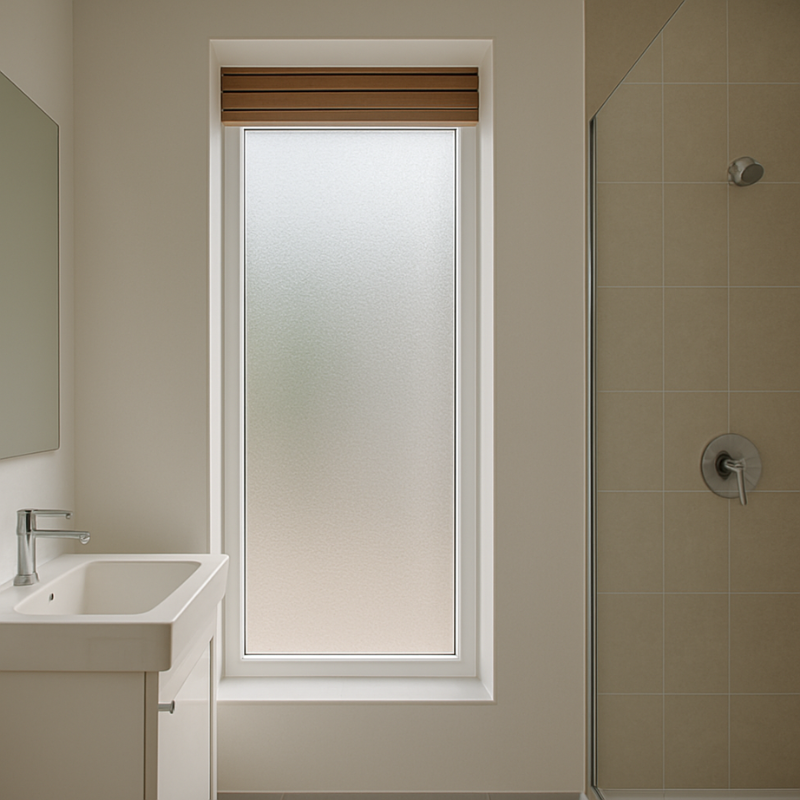
If you prefer traditional vertical windows, opt for frosted, textured, or sandblasted glass. These treatments diffuse light beautifully while obscuring direct lines of sight.
You can use frosted glass in full-height windows or combine it with:
- Slatted wood accents for a layered look
- Thin horizontal muntins for a more structured aesthetic
- Operable casement styles for added airflow
Some modern bathrooms even feature switchable privacy glass—a smart glazing option that transitions between clear and opaque at the press of a button.
4. Corner Windows for Architectural Interest
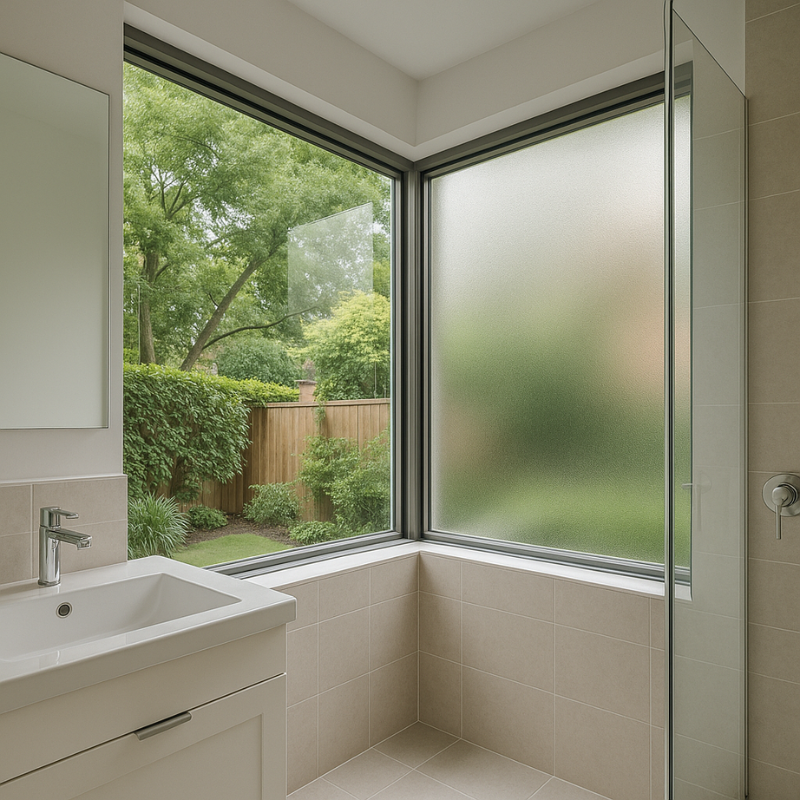
Corner windows are often overlooked in bathroom design—but they’re an elegant way to increase light and views. By wrapping glass around two adjacent walls, corner windows:
- Provide dual-directional light
- Eliminate harsh shadows
- Add a sleek, contemporary touch
To maintain privacy, you can use:
- One clear pane facing a private courtyard or garden
- One frosted pane on the street-facing side
- Integrated louvers or screens for diffused shading
They work especially well in minimalist or mid-century modern homes.
5. Windows in the Shower? Yes, please.
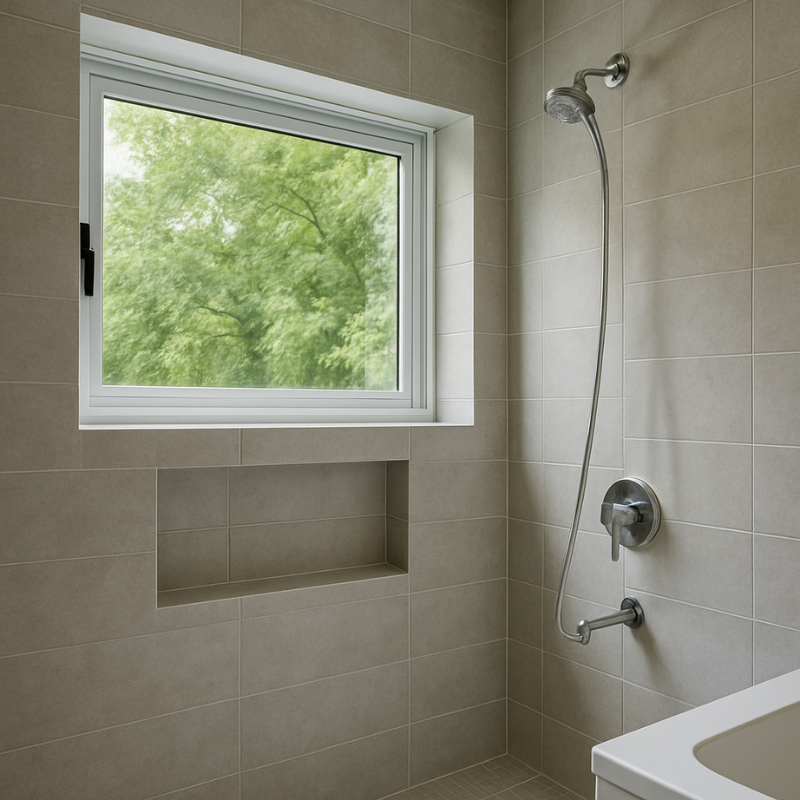
It may sound counterintuitive, but shower windows can be incredibly practical. Properly designed, they brighten the shower area and reduce the damp, gloomy feel common in enclosed cubicles.
Best practices for windows in the shower:
- Use tempered or laminated safety glass
- Install high up on the wall (above head height)
- Opt for casement or awning styles for ventilation.
- Ensure waterproof sealing around the frame
Pairing a shower window with a tiled niche or ledge can enhance the architectural appeal and function.
6. Window Walls Facing Private Green Spaces
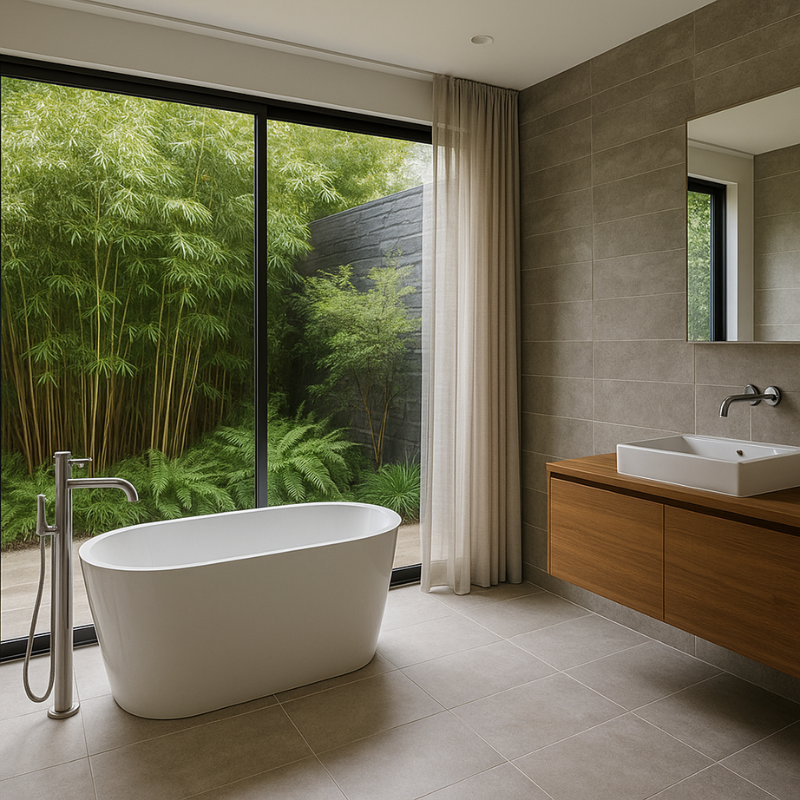
If the bathroom opens up to a private courtyard or garden, take advantage of it. Floor-to-ceiling windows or glass walls can create a serene, spa-like environment—blurring the line between indoors and out.
Combine large glazing with:
- Dense foliage or bamboo screens outside
- Sheer curtains or blinds for adjustable privacy
- Natural stone or timber accents inside to echo outdoor textures
This setup not only maximizes light but also makes the space feel expansive and immersive.
7. Use Light Shelves and Reflective Surfaces
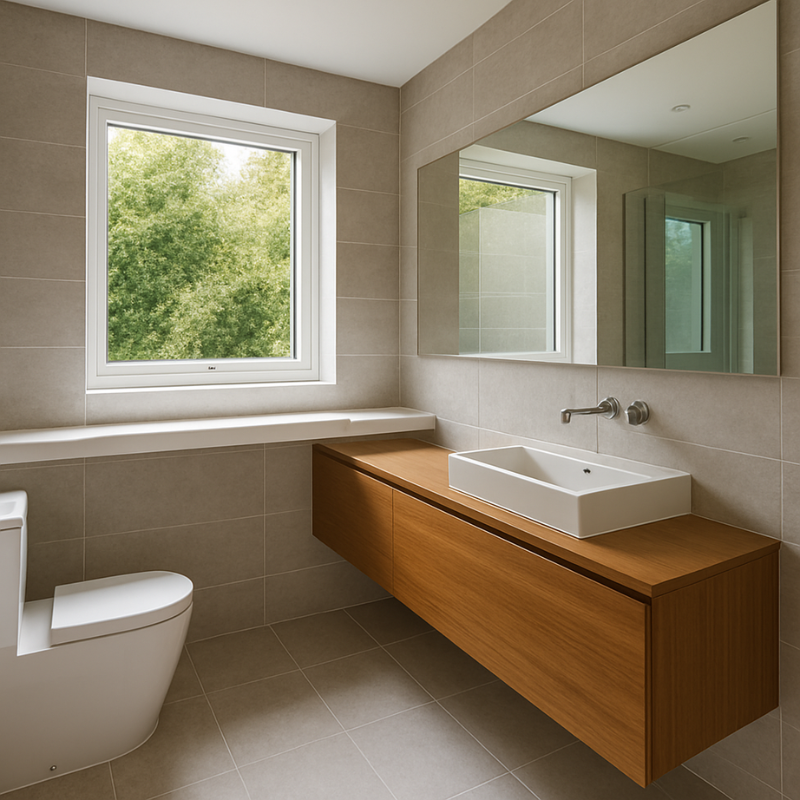
If your bathroom doesn’t have ideal exposure, you can still amplify the available light with smart surface planning.
- Install a light shelf—a narrow horizontal ledge beneath a window that reflects daylight onto the ceiling.
- Use mirrors, glossy tiles, or pale matte finishes to bounce light around.
- Position mirrors opposite or perpendicular to windows for maximum reflection.
Even small bathrooms can feel bright and open with these techniques.
Final Thoughts
Natural light doesn’t just improve visibility—it enhances the entire bathroom experience. From clever clerestory windows to serene skylights and frosted panes, there’s a solution for every layout and privacy requirement.
As architects and designers, we have the power to shape how people interact with light in their most personal spaces. By rethinking window placement in bathrooms, we can make daily rituals feel more connected, energized, and intentional.
Ready to bring more natural light into your next bathroom project?
At Ideas for Architecture, we explore lighting strategies, spatial flow, and material palettes that transform everyday spaces. Stay inspired—explore more ideas on architectural lighting and design intelligence across our blog.





